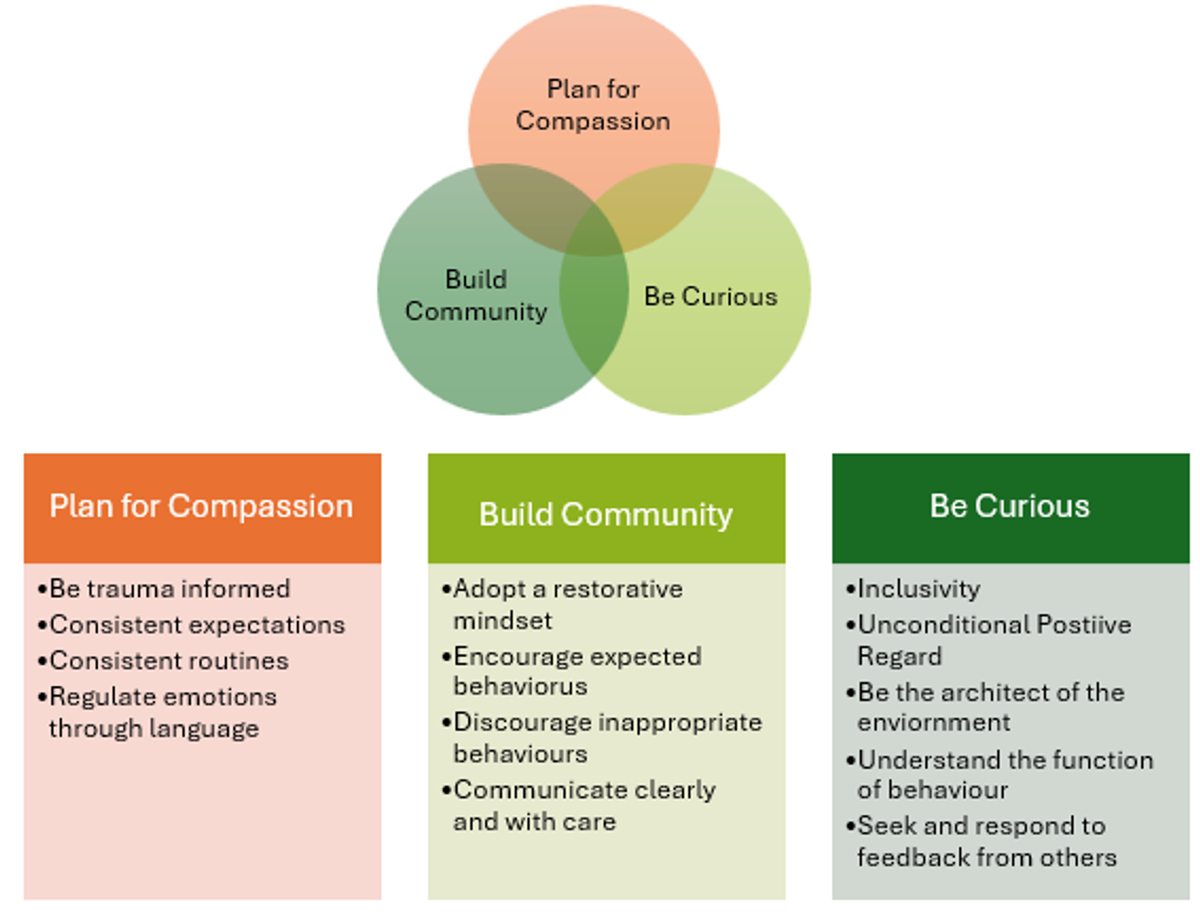Principal Report
Welcome to 2025!

Principal Report
Welcome to 2025!
Welcome to our first newsletter for 2025. This year, we will be increasing the number of newsletters that we produce and changing their format a little to help with communicating with the community more about the things that we are doing at Heathmont College.
It has been an extremely positive start to the year this year with a new cohort of Year 7 students excitedly beginning their high school journey and a new cohort of Year 12 students embarking bravely on the end of theirs. All other year levels have also made a great start to the year with there being a strong sense of community and connection across the college.
Last night, I had the privilege of visiting our Year 7 students at their transition camp on Phillip Island. It was incredible to see them stepping outside their comfort zones—whether tackling physical challenges or navigating new social connections.
Over dinner, it was clear that this is a remarkable group of young people. Their support for one another, their inclusivity, and their respect for staff and peers stood out. Watching them work together, ensuring everyone felt safe and valued, made me immensely proud.
Equally inspiring was our dedicated staff, who responded to students’ needs with care and flexibility. Their teamwork and commitment embody what makes the Heathmont College community so special.
In this report, I am including information about our new HEATHOS strategy that we are launching this year to support a positive learning climate across all classrooms. I have been working wit the staff across 2024 in fortnightly meetings to develop this strategy and in 2025, we will be implementing it and refining it through trial and feedback with parents and students.
The following outlines what this strategy means for parents and guardians.
The term ‘Heathos’ refers to the ‘Heathmont Ethos’, a framework for classroom management and organisation that is unique to our college community. Heathos incorporates other frameworks that are supported by the research base including Restorative Practice (Real Schools) and Positive Classroom Management Strategies (SWPBs). It outlines the approach that the school has adopted to develop a positive learning climate that ensures members of our community have what they need to flourish and achieve their best.
Under this framework staff, students and families hold varying degrees of responsibility but everyone is accountable to it as a defining part of being a member of our school community.
This framework will continue to evolve across 2025, starting with three key focus areas – one form each principle.
Key principles of ‘Heathos’
Currently these are:


Each of these principles is outlined in detail below.
This framework draws on the following models and ideologies: School Wide Positive Behaviours and the Positive Classroom Management Strategies (DE), Restorative Practice (Real Schools), Trauma informed practice (Berry Street), Self Determination Theory, HC values and processes.
Consistent Expectations
When our environment is consistent and predictable, everyone can learn and work at their best and achieve their best outcomes. It provides a sense of safety and security and reduces anxiety.
At Heathmont College, all members of our community are expected to:
The above expectations are broad enough that they can be adapted to all facets of school life and provide flexibility with this adaptation to consider individual needs and differences of the people, subjects and learning spaces of the school environment.
Consistent classroom routines
When classrooms are predictable and orderly across the school, students are better able to settle into learning and do their best work. Consistent classroom routines support a collaborative classroom culture and increases instructional time. It also helps to reduce anxiety and uncertainty.
Clarity, consistency and predictability provide a strong foundation for productive and positive relationships in the classroom.
As parents and family members are not regular attendees of the classroom, they do not have any direct responsibility under this element of the framework however, they are expected to support this element in principle.
How can parents support this principle of HEATHOS?
Adopt a restorative mindset to students and their behaviours
In any school, a culture of respect starts with the adults, the leaders of the school, the teachers and the parents and other family members and their professional interactions and the relationships they build with each other. They also learn a lot about how to manage conflict and resolve issues through watching how the adults work through these situations. As adults, we can model and influence the behaviour of our students.
To increase the respect levels amongst the young people we work with, the easiest starting point is to lead by example with the interactions we have with other adults. Basically, the best way to teach respect it by modelling the behaviours and interactions that we want to have with our young people.
The likelihood of the brain responding with positive affect to respectful interactions is extremely high and can be very rewarding for everyone.
Building a culture of respect doesn’t happen overnight and there is no quick fix. It takes lots of little positive interactions, everyday
Providing young people with feedback when they display desirable behaviours promotes a calm and orderly environment, supports increase sense of connectedness and belonging and promotes learning. It also helps to build quality relationships through building respect.
How can parents support this principle of HEATHOS?
An inclusive culture is driven by:
The Australian Institute for Teaching and School Leadership (AITSL) have established a set of values to guide the development of inclusive school cultures. We will be considering these values and principles across 2025 to identify how these ‘fit’ with our HEATHOS framework.
This principle involves the following main foci:
At the school level (for staff)
For everyone
Improvement requires critical and accurate feedback. People will feel more connected when they believe that their opinions, thoughts and feelings matter. All members of our community need to feel that they have a voice that is valued.
How can parents support this principle of HEATHOS?
Working in partnership with teachers to help identify the reasons for student behaviour and sharing this knowledge with the school is one of the best ways that parents can support with this principle.
Another key way to support this principle is to provide us with feedback – when we seek it and when we don’t. Provided that this is done respectfully, we are always keen to get constructively critical feedback. We want to provide your children with the best possible education and you are best placed to know what will help us to do that. Whilst there will always be things that are outside the boundaries of what we can do, we have become quite good a creatively finding ways to meet the needs of our students. We can always use additional ideas and support in this work.
We will be further developing this framework across 2025 and part of that will be to gather feedback from you as community members to strengthen it.
Mr Lachlan Hunter and Mr Jack Lynch will be leading a lot of this work and they will be seeking feedback from you and from students to make sure that it is capturing all that is important about how we work together as part of the Heathmont College community. I encourage you to discuss this framework with your young people and each other and if you have any ideas or questions, let us know either via the feedback channels that are set up or by calling or emailing us at the college.
This term, at the college, we are focusing on elements of HEATHOS with staff and students. In particular, we are working to support all students to bring the required equipment to class, to enter and exit the classroom in a standard and orderly way and on making more contact with families to keep you better ‘in the loop’ with what is happening in classrooms (the good and the bad..). We will also be developing plans for how we support a sense of belonging for students in classrooms, building on the work that we did as a staff across 2024.
Kerryn Sandford
Principal